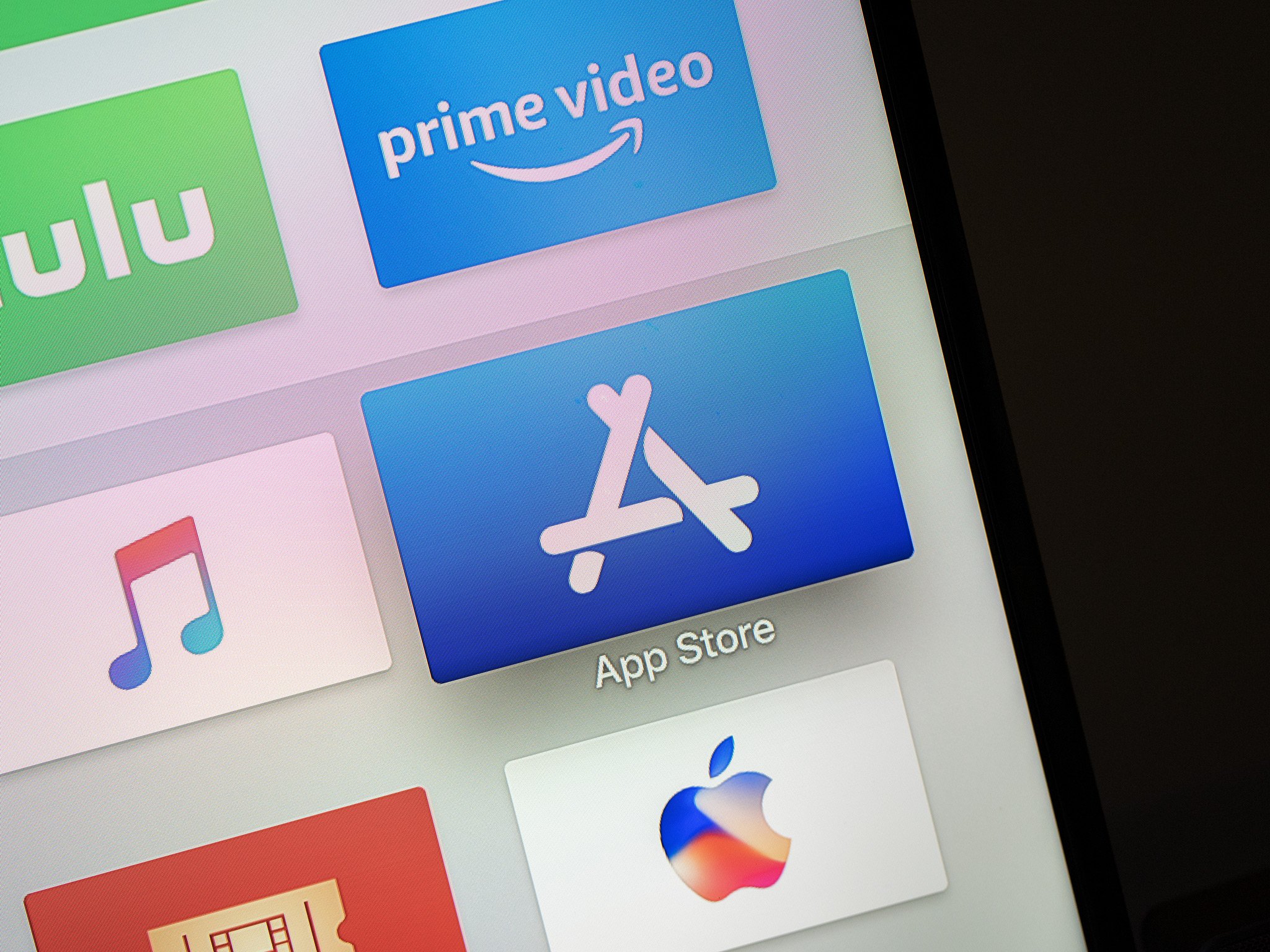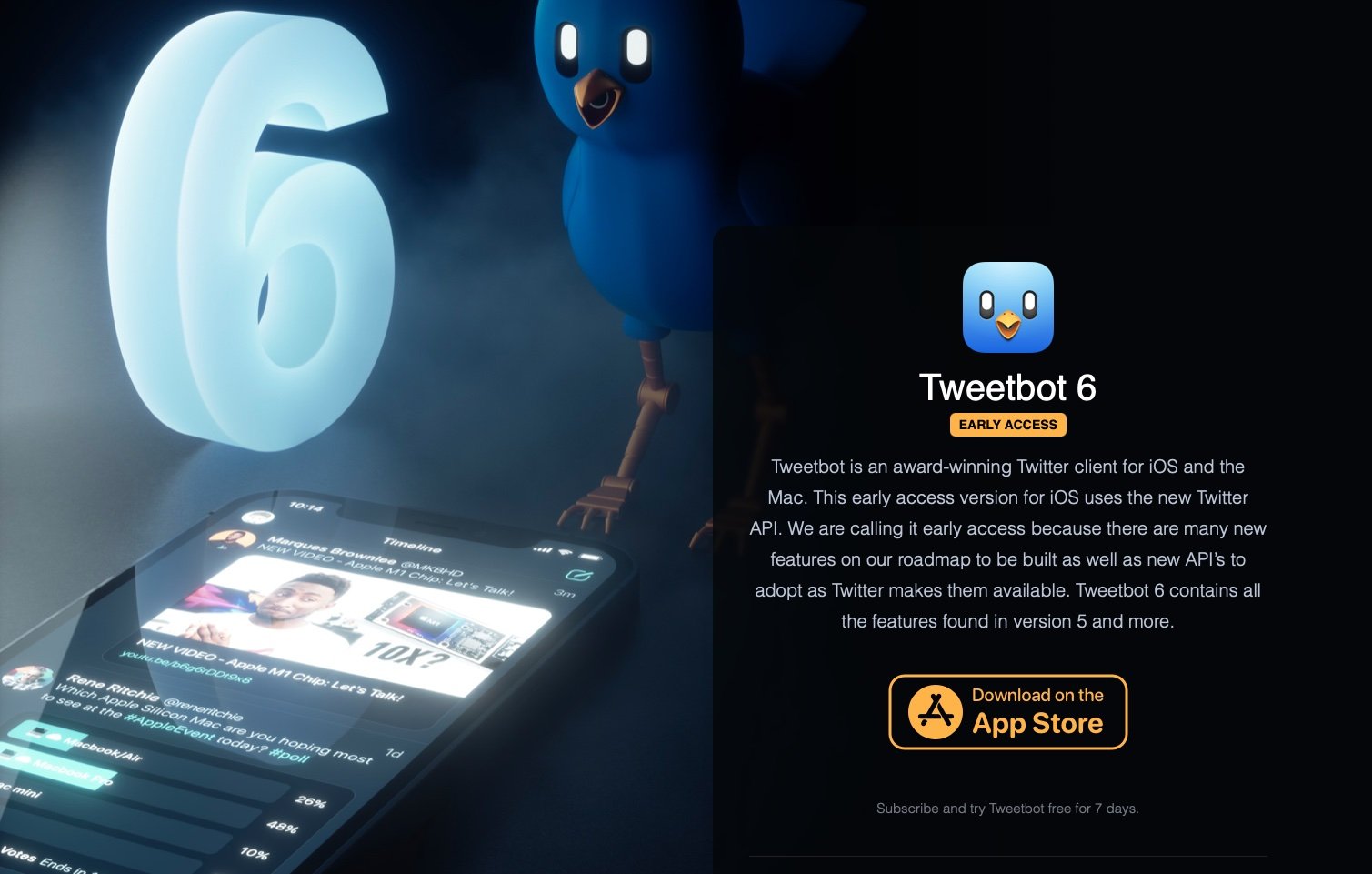App subscriptions are here to stay and it's time to get over it

Earlier today long-time developer Tapbots released Tweetbot 6, a new update to the popular Twitter app. The app itself is a nice update, but that isn't what everyone is talking about. Instead, everyone is talking about the switch to a new subscription-based pricing model.
Here we go again.
I say again because we've been here plenty of times over the years. It happened when 1Password switched to a subscription model. Ulysses switched and upset people, as have many more. 1Password moved over to subscriptions almost four years ago and people are still whinging about it.
Four. Years. Later.
For context, Tweetbot 6 costs $0.99 per month or $5.99 per year. We're not talking about the I am Rich app here.
So why are developers doing away with paid-for apps and switching to subscriptions? Because if they don't, they won't be able to make apps anymore. Because people don't buy apps.
This all stems from the infamous App Store race to the bottom that saw apps start out at a reasonable $9.99 or so and then work their way down to free because people didn't see any value in them.
Master your iPhone in minutes
iMore offers spot-on advice and guidance from our team of experts, with decades of Apple device experience to lean on. Learn more with iMore!
But developers needed to make money – devs have to eat like the rest of us. So do their kids, too. That's where in-app purchases began to take hold. But that doesn't really work for an app like Tweetbot. Or 1Password, for that matter. So what's a developer to do?

Trying to find a way to ensure they have a source of recurring revenue, app developers turned to charging small fees monthly or annually. Releasing a new app every year and charging upfront didn't work because, you guessed it, people wouldn't pay. Maybe they'd pay smaller amounts of money monthly, with those who are willing to pay able to do so annually instead.
Ignoring the fact that developers need to feed themselves, subscription-based income helps us, too. Apps go away when developers have to cast them aside and work for The Man so they can earn a living. If Tweetbot went away, I'd be sad, so giving Tapbots $5.99 per year for an app I use (too much) every day is a no-brainer for me.
Apps not going away means they get updates, too. They get to take advantage of new iOS, iPadOS, watchOS, tvOS, and macOS features when they're announced. Developers don't have to decide whether to sink time into an app that isn't earning them any revenue in the hope it might do at some point six months down the line.
People love to complain about subscriptions in apps. They seem to think they're being ripped off because they're paying for something they're using. It's the same stance that led to great indy developers having to take jobs in other companies, taking their apps with them. It's led to countless other apps being abandoned, drifting on the App Store like unloved zombies, because they weren't viable. And that's just... sad. It's sad for the App Store, it's sad for developers, and it's sad for us.
Because without the apps we all use on these $1,000 iPhones, what are they really?
Motorola Rokr phones. That's what.

Oliver Haslam has written about Apple and the wider technology business for more than a decade with bylines on How-To Geek, PC Mag, iDownloadBlog, and many more. He has also been published in print for Macworld, including cover stories. At iMore, Oliver is involved in daily news coverage and, not being short of opinions, has been known to 'explain' those thoughts in more detail, too. Having grown up using PCs and spending far too much money on graphics card and flashy RAM, Oliver switched to the Mac with a G5 iMac and hasn't looked back. Since then he's seen the growth of the smartphone world, backed by iPhone, and new product categories come and go. Current expertise includes iOS, macOS, streaming services, and pretty much anything that has a battery or plugs into a wall. Oliver also covers mobile gaming for iMore, with Apple Arcade a particular focus. He's been gaming since the Atari 2600 days and still struggles to comprehend the fact he can play console quality titles on his pocket computer.
